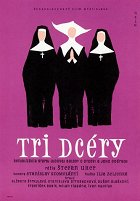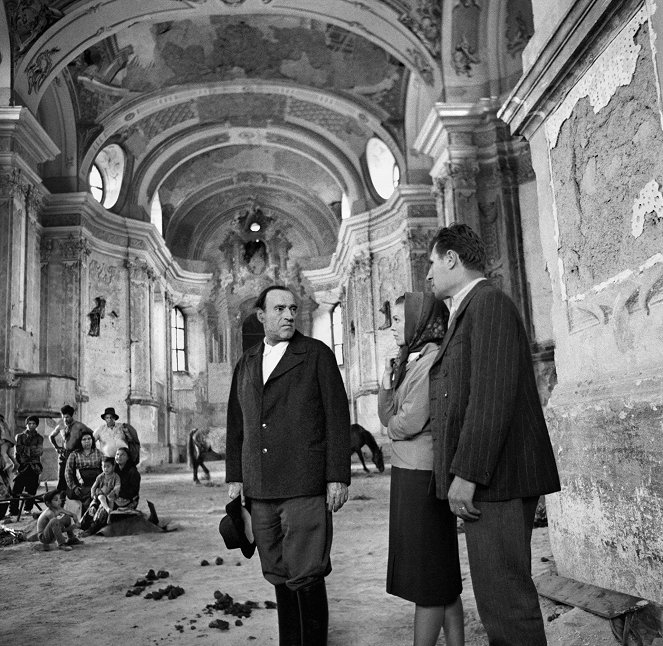Rendező:
Štefan UherForgatókönyvíró:
Alfonz BednárOperatőr:
Stanislav SzomolányiZeneszerző:
Ilja ZeljenkaSzereplők:
Jozef Čierny, Ivan Rajniak, Dušan Blaškovič, Milan Fiabáne, Viktor Blaho, Věra Tichánková, Hana Slivková, Ernest Šmigura, Alžbeta Štrkulová (több)Tartalmak(1)
An old folk ballad actualization about a father and his three daughters. After losing all of his possessions old Majda seeks shelter at his three daughters whom he had sent to cloister long ago to avoid the dividing of his property. Only his youngest daughter, although abandoned by her sisters herself, is willing to take care of him. (forgalmazó hivatalos szövege)
(több)Recenziók (1)
For some time now, I have been trying to discover a hidden treasure of Slovak audiovisual production, something from the archives that has eluded me thus far despite being an exceptional achievement. I have often found that the films that previously passed me by really weren't worth it. But this time, I hit the jackpot. Three Daughters resembles the best of Kachyňa's work, perhaps closest in theme to The Nun's Night. However, Uher uses a different style and steers the story in a different direction. In the clash between those who represent victorious forms of progress and those who hinder the construction of a new world, the director uses bitter irony and portrays both sides of the conflict in a very unflattering light. The progressive vanguard of society, embodied by a trio of officials, is depicted as lecherous, cowardly, and hypocritical. The mother is portrayed as a cynical manipulator, and the community of nuns as bigoted and stagnant. Both sides are equally incapable of compassion. When necessary, everyone retreats from seemingly irreconcilable ideological positions; suddenly, the nuns have no problem dutifully parroting the regime's slogans during training, while the officials are content with these external rituals and allow their charges to live more or less as they please. It is actually an allegory of life in real socialism. Out of this festival of smallness, one human being stands out, where selflessness and a sense of responsibility prevail. What will happen to him? Overall impression: 90%.
()

